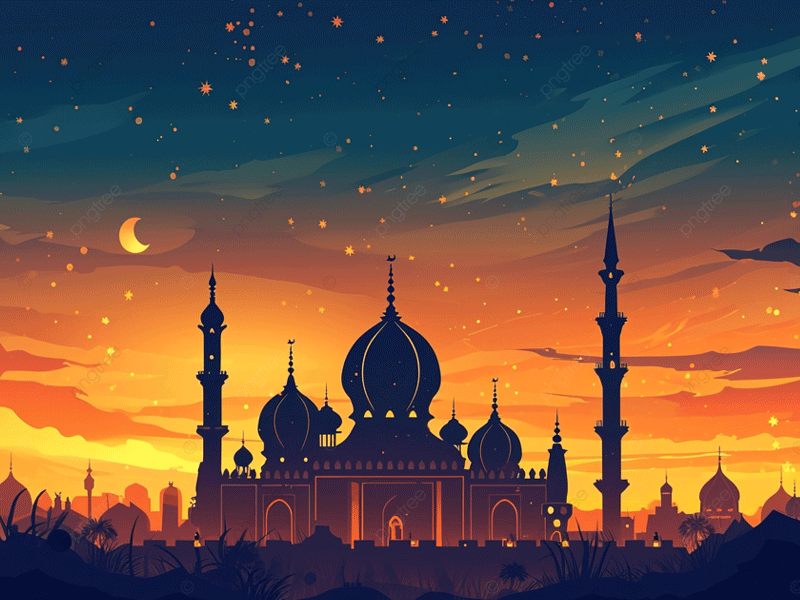Blessed Beginnings: The holy month of Ramadan

- 156
- 0
Ramadan, known as the holiest month in the Islamic calendar, holds profound significance for Muslims worldwide. It is a time of fasting, prayer, reflection, and community. Observed by over a billion Muslims globally, Ramadan commemorates the revelation of the Quran to the Prophet Muhammad (peace be upon him) and serves as a period of spiritual growth, self-discipline, and devotion to Allah (God).
Origins and Significance
The origin of Ramadan traces back to the Islamic lunar calendar when the Quran, the holy book of Islam, was revealed to Prophet Muhammad over 1,400 years ago. The revelation occurred during the ninth month of the Islamic calendar, which is now celebrated as Ramadan. The Quran describes Ramadan as a blessed month in which Muslims fast from dawn until sunset, abstaining from food, drink, smoking, and other physical needs. The fast is an essential aspect of Ramadan, symbolizing self-discipline, purification, and empathy for those less fortunate.
Fasting and Spiritual Reflection
Fasting during Ramadan is one of the Five Pillars of Islam, fundamental acts of worship that shape a Muslim's faith and practices. The fast begins at dawn with the pre-dawn meal called Suhoor and ends at sunset with Iftar, the meal to break the fast. Throughout the day, Muslims engage in increased acts of worship, including recitation of the Quran, extra prayers (Taraweeh), and supplications. Fasting isn't limited to refraining from food and drink; it also involves abstaining from negative behaviors such as gossip, lying, and impure thoughts. The fast fosters spiritual discipline, patience, and mindfulness of Allah's mercy and blessings.
Community and Charity
Ramadan promotes a sense of unity and compassion within the Muslim community. Families and friends gather for Iftar, sharing meals and strengthening bonds. Mosques host communal Iftar gatherings, welcoming individuals of all backgrounds to partake in the spirit of Ramadan. Additionally, Muslims are encouraged to engage in acts of charity (Zakat) and kindness, providing support to those in need. Charity is a central tenet of Islam, emphasized particularly during Ramadan, when blessings and rewards are believed to be multiplied manifold.
Night of Power (Laylat al-Qadr)
Among the last ten nights of Ramadan is Laylat al-Qadr, often translated as the Night of Power or Decree. It is believed to be the night when the Quran was first revealed to Prophet Muhammad and is considered the holiest night of the year. Muslims dedicate these nights to intense prayer, seeking forgiveness, and supplicating for guidance and blessings. It is said that worship on Laylat al-Qadr is more valuable than a thousand months of worship, signifying the profound spiritual significance of this night.
Conclusion
Ramadan is a sacred time for Muslims, embodying principles of faith, discipline, and compassion. It serves as a period of spiritual rejuvenation, drawing individuals closer to Allah and fostering a sense of community and empathy. Through fasting, prayer, and acts of charity, Muslims seek purification of the soul and alignment with the teachings of Islam. Beyond its religious significance, Ramadan promotes values of selflessness, gratitude, and empathy, transcending cultural and geographical boundaries to unite Muslims worldwide in devotion and worship.
Published in The Daily National Courier, March, 08 2024
Like Business on Facebook, follow @DailyNCourier on Twitter to stay informed and join in the conversation.

















































